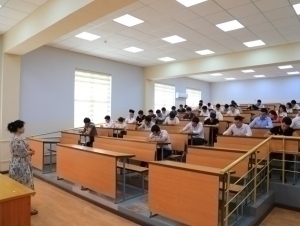By Shexroz Jalg
The area of buildings and structures intended for the educational process of a new higher education institution must not be less than 5,000 square meters. This is stated in the resolution of the Cabinet of Ministers titled “On additional measures to improve the quality of non-state educational services in the Republic,” adopted on June 30 of this year.
The resolution introduces additional licensing conditions for opening a private university. One key requirement is that the applicant must submit a comprehensive concept for the planned institution.
The submitted concept must include the following:
Name and status of the educational institution
Management structure and staffing
Primary areas of educational and research activity
Admission capacity and parameters
Systems and tools for ensuring educational quality
Tuition fees and their calculation method
A five-year strategic development plan
Other essential aspects of the institution’s future operations
Additionally, the applicant must form an initial authorized capital amounting to at least the equivalent of 2 million US dollars. This includes the material and technical infrastructure, as well as software, directly related to the educational process. The capital must be proportionally increased in line with student enrollment growth.
Furthermore, the applicant must deposit 350,000 US dollars into a commercial bank account as reserves.
The total area of the educational buildings must be at least 5,000 square meters. Ownership of the building is not mandatory, but if leased, the agreement must be valid for a minimum of five years.
Another key provision requires that private higher education institutions reinvest at least 80 percent of their annual net profit into the institution’s core development activities during the first five years. Afterward, the reinvestment requirement is reduced to no less than 50 percent.
Private higher education institutions will launch operations in two stages: first by obtaining a license, and then undergoing a special accreditation process. It is strictly prohibited to enroll students in unaccredited programs.
The resolution will come into force three months after its official publication. Private institutions that received their license before the resolution takes effect must fully comply with the new requirements and conditions by January 1, 2026.
It is worth noting that significant changes are currently underway in Uzbekistan’s higher education sector. According to the Presidential Decree “On Additional Measures to Ensure the Quality of Education and Improve the System of Educational Services,” all correspondence (distance learning) programs will be discontinued starting from the 2025/2026 academic year.
The same decree also established the National Agency for Quality Assurance of Education under the Administration of the President of the Republic of Uzbekistan. This agency is responsible for conducting complex and specialized state accreditation of secondary, special, professional, higher, and postgraduate education, as well as personnel retraining and professional development institutions.
